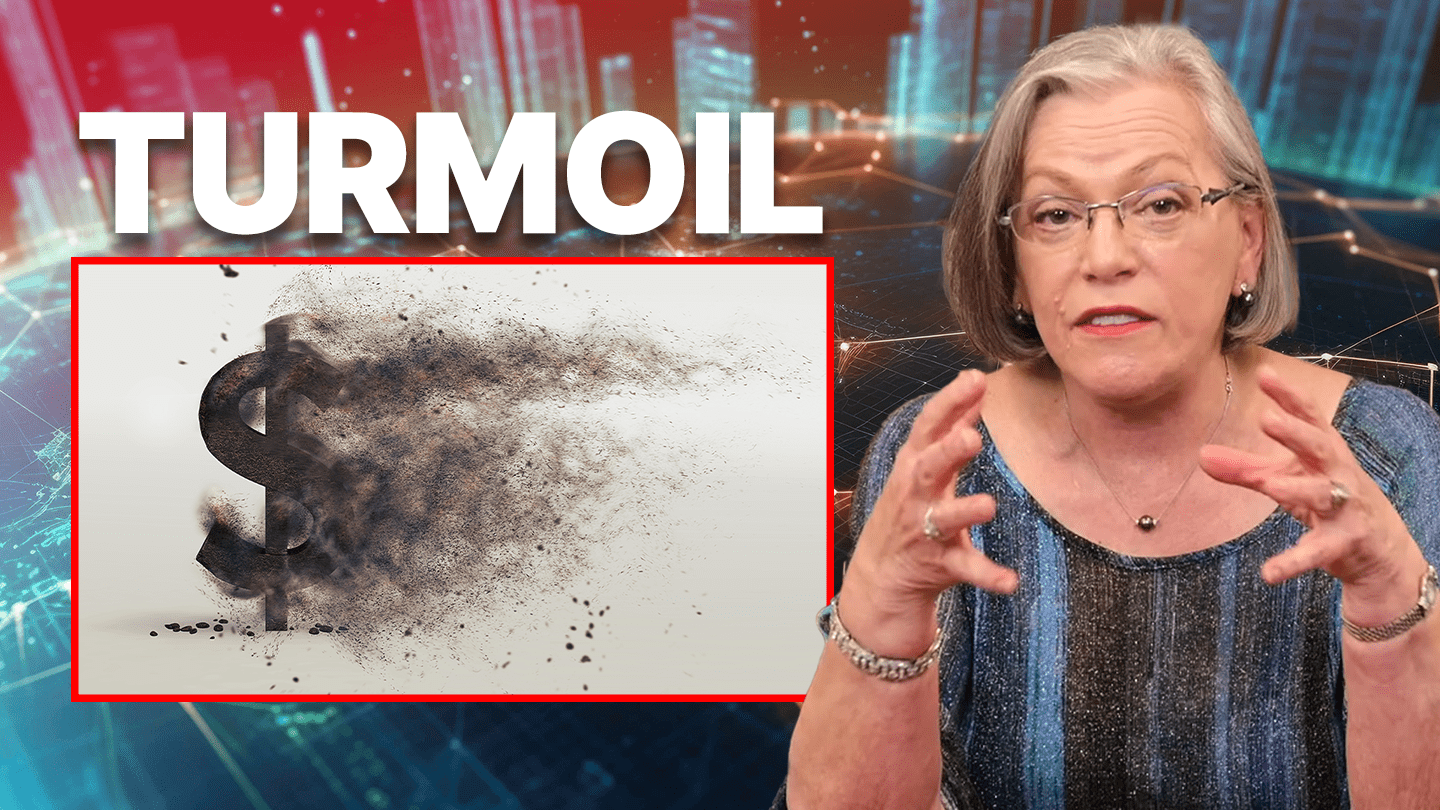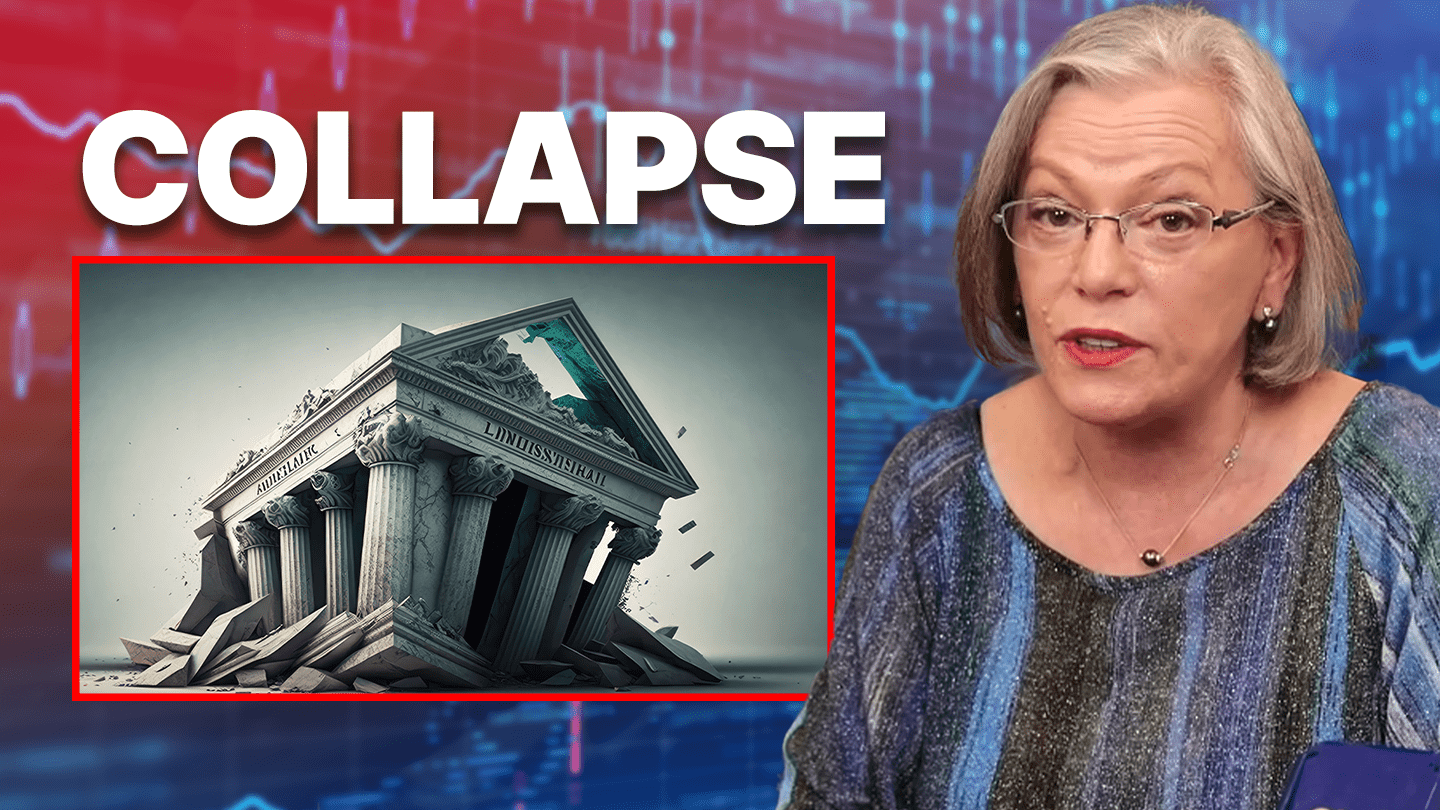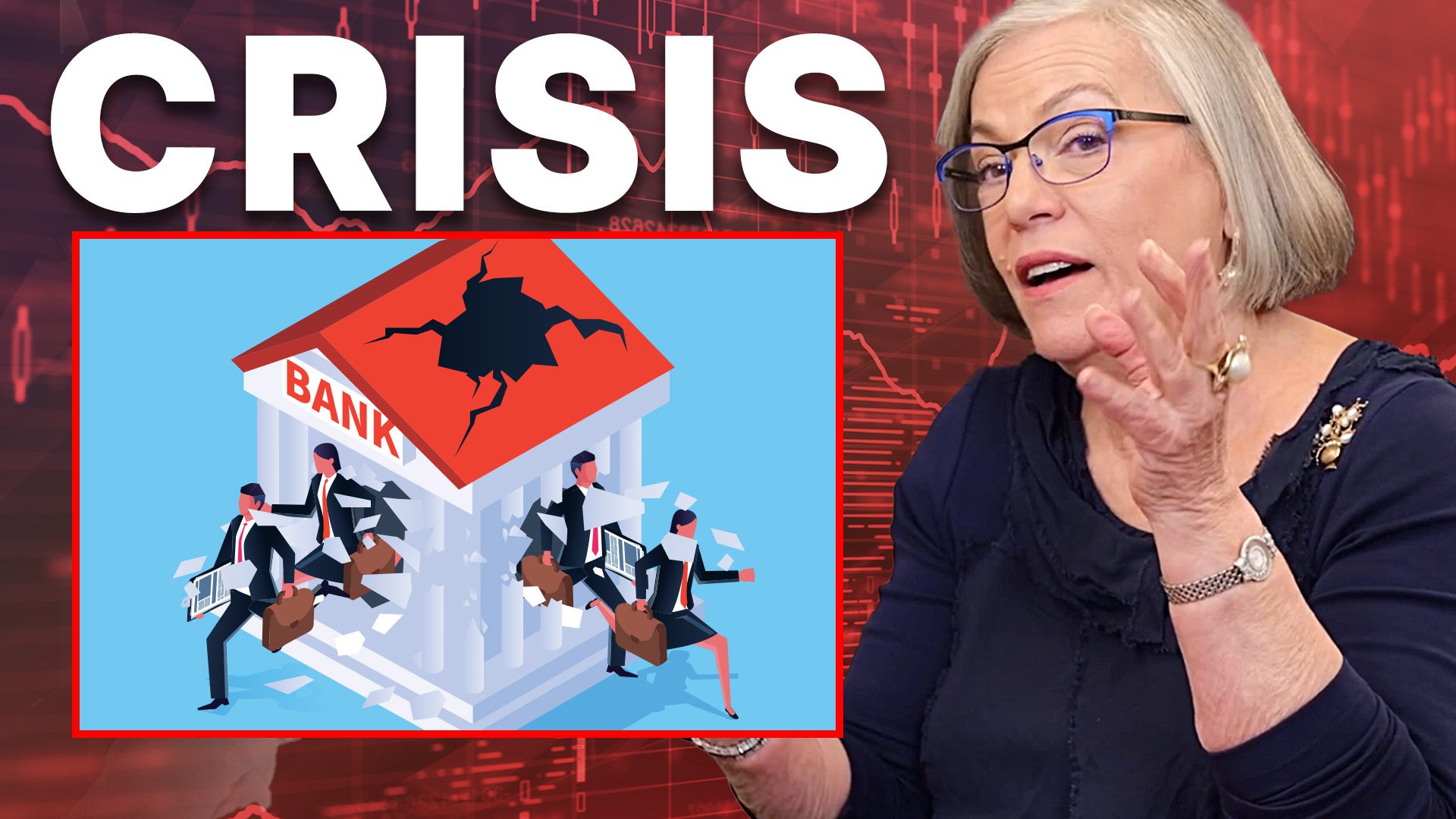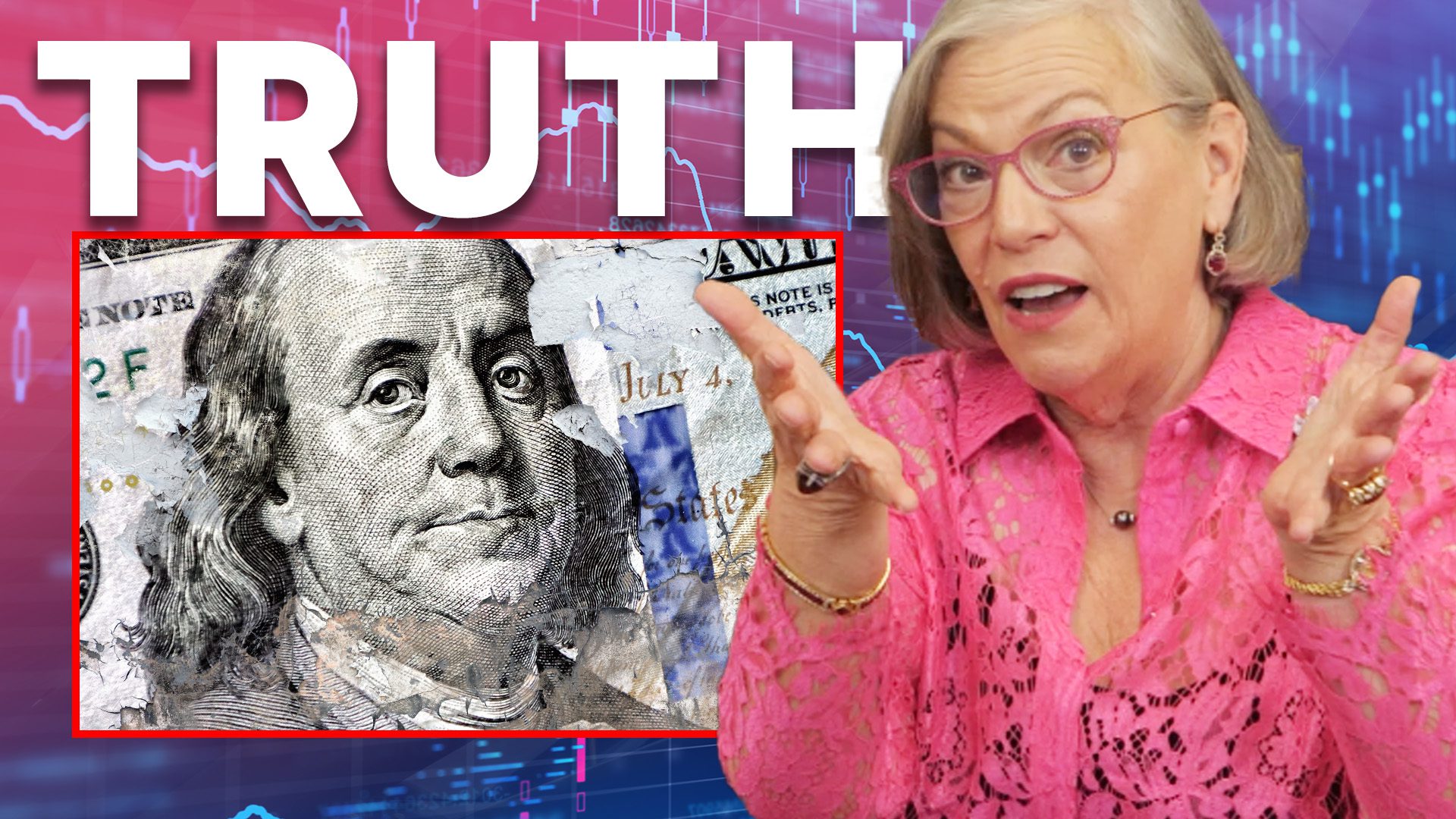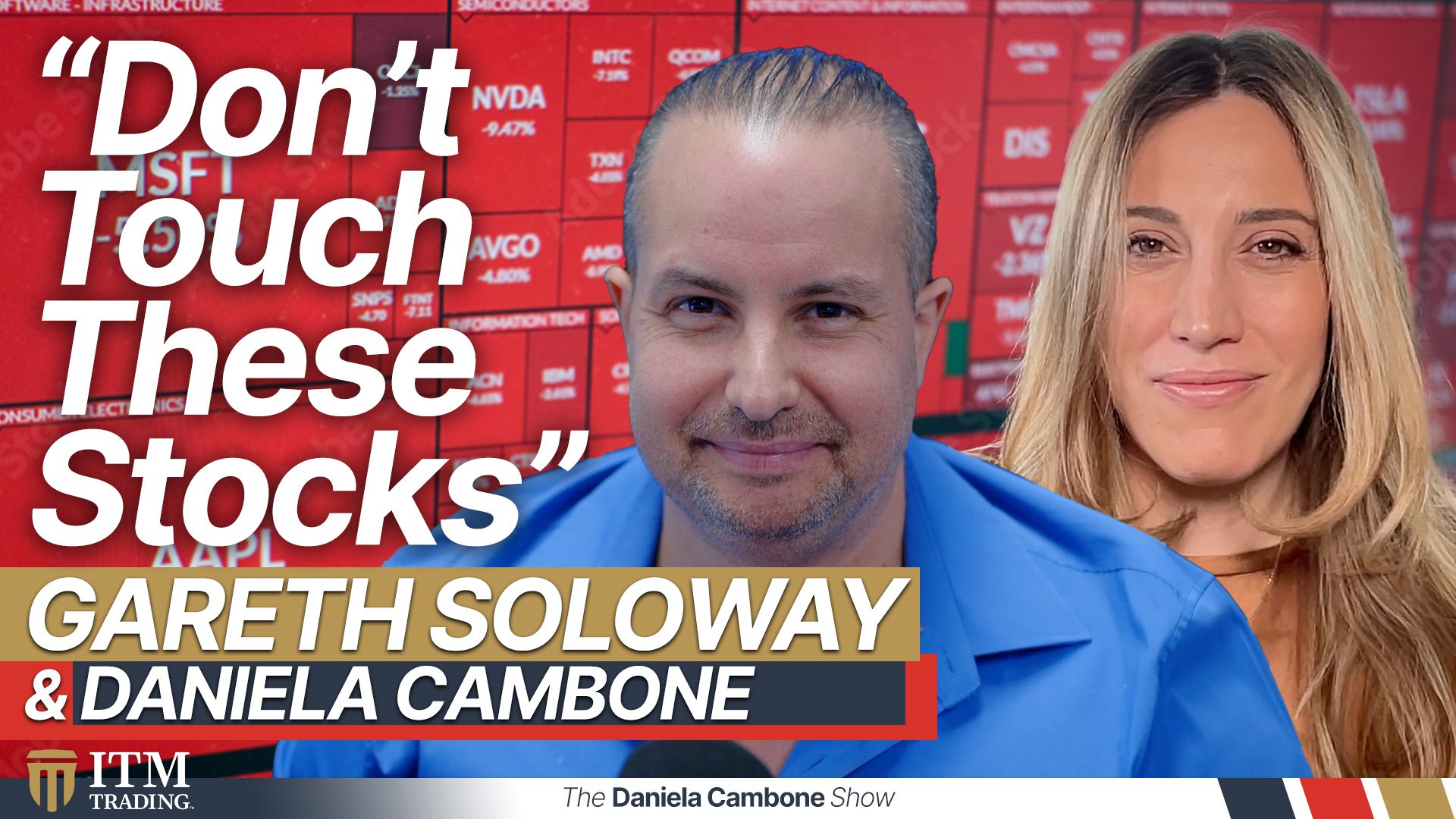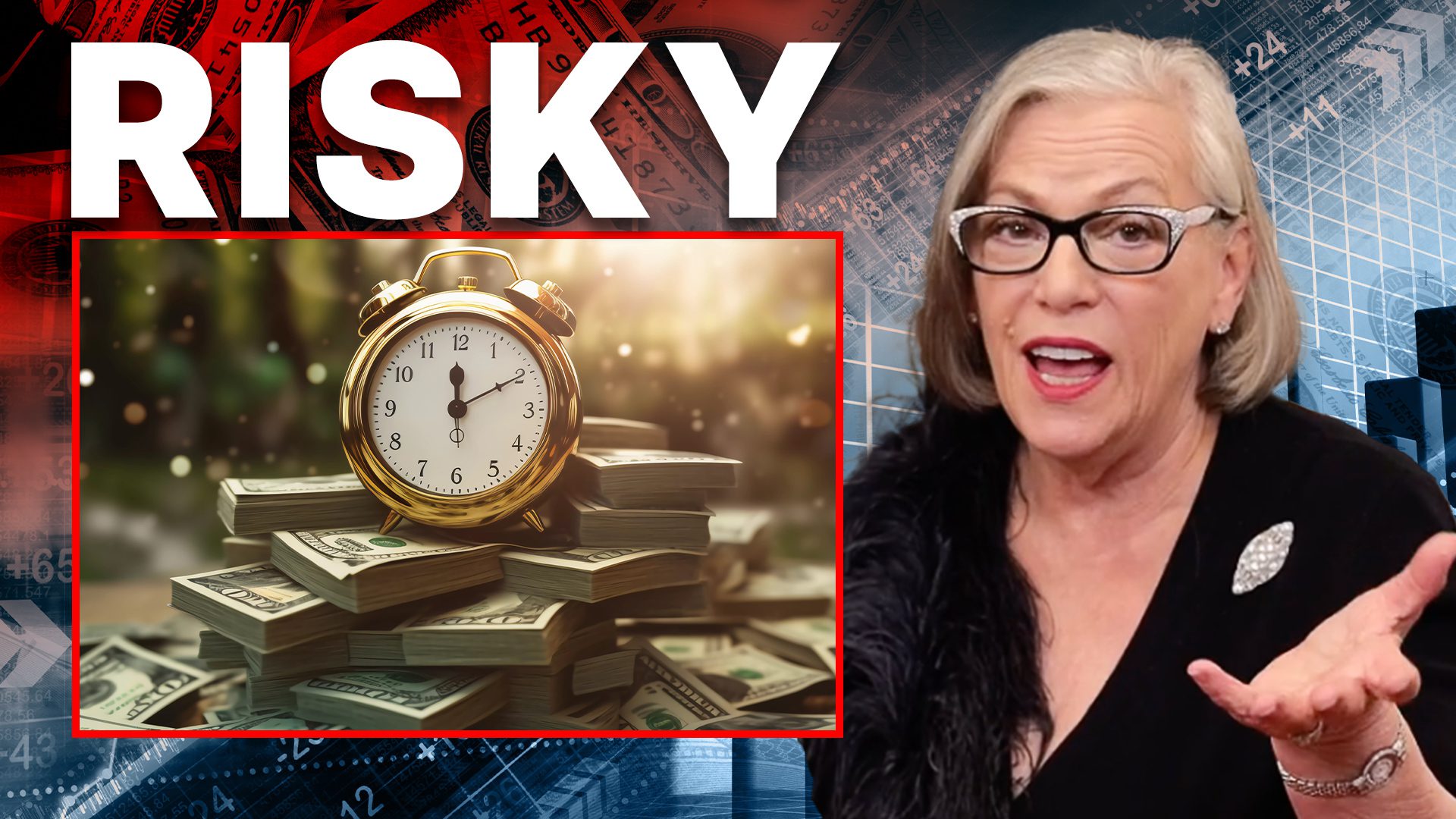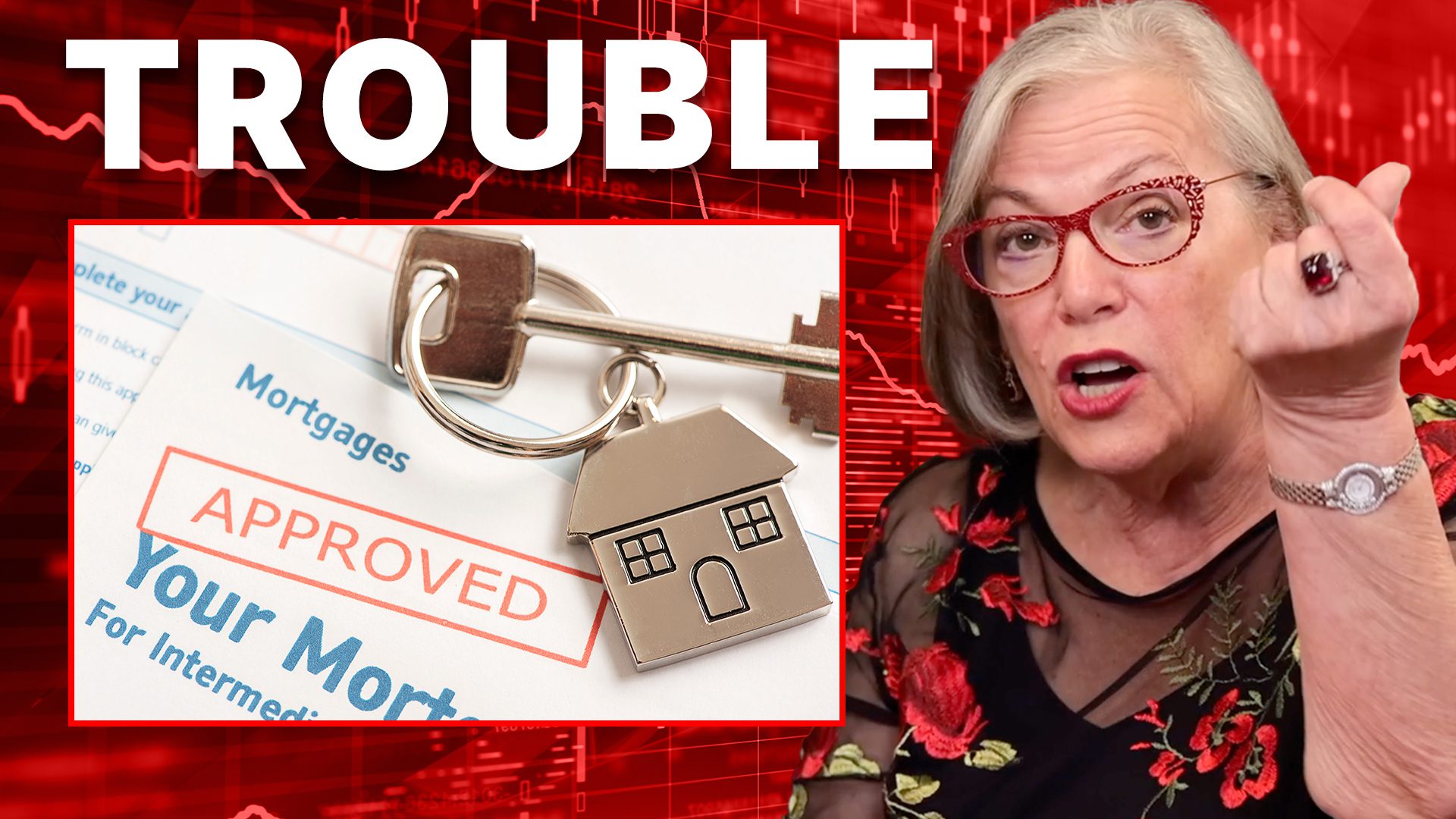RESET, BAIL-INS & HYPERINFLATION…Q&A WITH LYNETTE ZANG
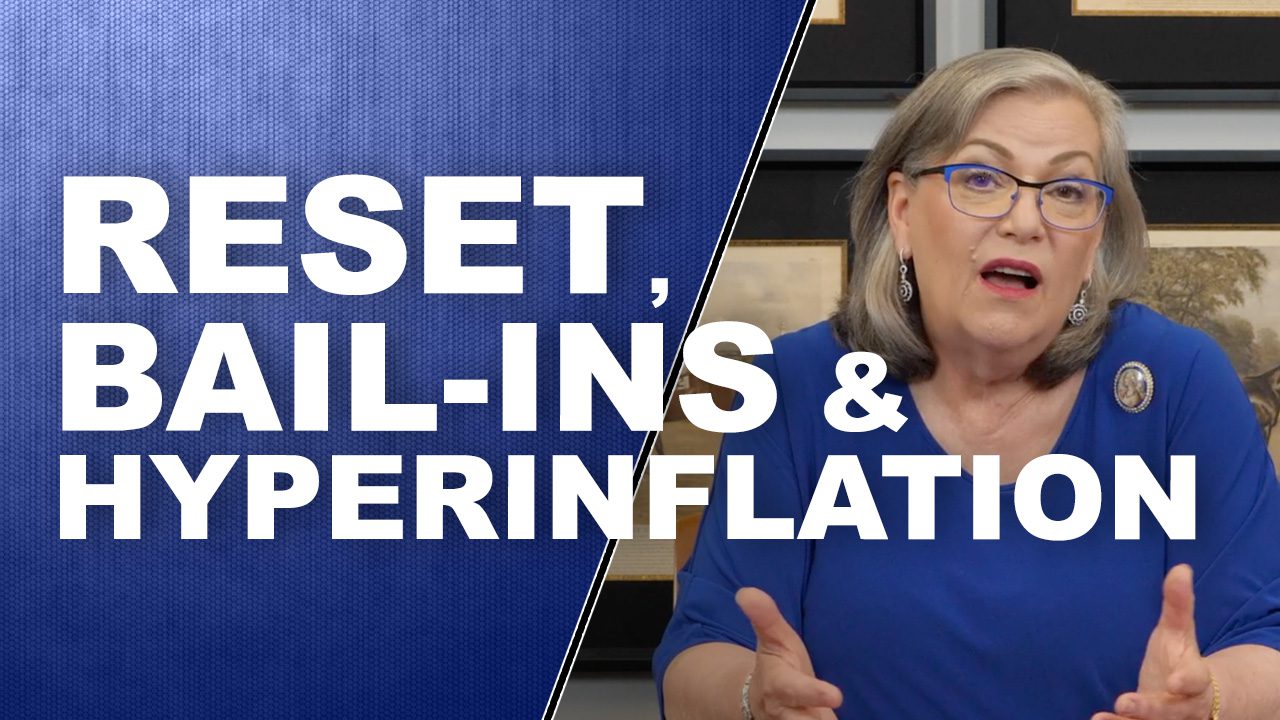
Eric sources questions from Lynette’s viewers and Lynette responds with organic and unrehearsed answers. If you have a question for Lynette and Eric, please either submit your question though YouTube, Facebook, Twitter, or email to questions@itmtrading.com. If you enjoyed the Q&A with Lynette Zang, please like, subscribe, and share in order to help Lynette fight the fiat money disease!
Have questions for the Q&A, email us at questions@itmtrading.com
Have questions about acquiring gold and silver? Call: 877-410-1414
Viewer Submitted Questions:
Question 1: 0:58
How do I position myself for Hyperinflation? What would my portfolio look like the day before hyperinflation started?
Question 2: 4:54
Can you confirm or explain if the money that is going back to the FED from the banks, is because the personal savings rates are rising, or because of the repo market?
Question 3: 7:29
We would like to learn more about the potential bank bail-ins. Is a bail-in just for cash in a bank account or IRA, or could a bail-in also take invested dollars in mutual funds, stocks and bonds that sit in an IRA at a brokerage like Fidelity or Schwab?
Question 4: 9:31
Is it safe to hold your metals in a safe deposit box?
Question 5: 11:27
I was wondering your opinion on what will happen to other country’s currencies when the US dollar resets, in particular Canada’s?
Question 6: 12:30
Recently, the UK announced that they are going to be testing UBI in Wales. What does this pilot program mean for other countries and the world economy?
Question 7: 14:19
What happens to retirement accounts during the reset?
Transcript:
I’m Lynette Zang, Chief Market Analyst here at ITM Trading, a full service, physical gold and silver dealer, specializing in custom strategies to deal with the reset that frankly has already begun. And we’re already walking through. Although if I’m going to be perfectly honest with you, it started the day you were born. You just didn’t know it. Cause it was slowly inflating away the value of the currency. So, uh, Eric is not joining me today. Unfortunately he’s a little under the weather, but he’ll be fine. It’s just a little cold and I’m going to go right to questions. So I’m going to start with Bart. M how do I position myself for hyperinflation? What would my portfolio look like the day before hyperinflation started? Well, uh, I believe we’re pretty much out the day before, so I don’t know what your portfolio looks like. I know that my personal portfolio is loaded with physical gold and physical silver, as a means to counter and not actually participate as, as much as possible in that hyperinflationary event.
I do have a certain level of cash because that is your first line of defense while people still accept it. But once the hyperinflation kicks into gear, people are very well aware of how quickly it’s losing its value. So you want to be as independent and self-sufficient as possible, which means like, you know, how do I position myself for hyperinflation? Well, it takes me to the mantra, food, water, energy security, barter ability, wealth, preservation, community, and shelter. And you need to make sure that you have as much as possible put in place of all of those things so that you can sustain your standard of living as much as possible. So your whole, how do you position yourself? You make sure if you can’t grow food, there’s food that has a long shelf life. Um, you can put some sprouting seeds in the freezer. So even if you’re mostly eating your beans and rice, you can have some live food so that you can stay as healthy as possible.
You’re going to need a clean source of water. You’re going to energy. I mean, if, if the grid goes down or probably when the grid goes down as a more accurate statement, you’re still going to need a way to keep your refrigerators and freezers running and cook your food. So, you know, you can go out and get a little camp still. You can get a small little generator or solar generator that can make sure that your refrigerator and your freezer stays on maybe nothing else, but at least you’d have that along with a camp stove with those little gas canisters or, or a grill with a big gas canister so that you can cook. So look at how you’re living your life now and think about what you could do to replace that in expensive. Really, although we’re putting something together, we’ll have that before too long, too, but, um, inexpensively to be able to sustain your current standard of living.
And again, I’ll repeat that mantra. I know some people might be sick of hearing me say it, but I’ll say it again. Anyway, food, water, energy security, barter ability, which is what I use my silver for wealth preservation, which is what I use my gold for community and shelter. These are the things, and that’s what you need to do to position yourself for hyperinflation. And your portfolio has a minimal level of finance in it. Some cash barter-able silver, barter-able gold. The strategy that we execute here is based upon your current cost of living. So you could give us a call and we could walk you through how much and what kind of silver you need, how much, and what kind of gold you need based upon your personal circumstances and goals and Otis F asks, can you confirm or explain if the money that is going back to the fed from the banks is because the personal savings rates are rising or because of the repo market?
Well, it’s kind of a combination of a number of things. It is indeed part of the personal savings rate with all of this stimulus. That’s going to people. Um, I think I was just on with George Gavin earlier today, which definitely going to want to watch that interview. I thought it was a great interview, but, um, he mentioned that he just looked at some data that confirmed that month over month in March, uh, personal income rose 20% because of all of the stimulus. And so when people are unsure about what’s going to happen in the future, they save more. So absolutely part of it is I think the personal savings rate. And then I was just looking at that 27.3%, which is pretty high actually were, you know, other than right after, uh, COVID hit when everybody got a bunch of money. Um, this is the second highest rate in history.
Now it’s interesting too, because of what’s happening in the repo markets with the federal reserve, creating massive amounts of new dollars, turning around and buying short-term treasuries means that there’s a lot of demand in the market from all of that new cash. And there’s limited supply of treasuries because the central, because the fed the central bank is actually buying a lot of the treasuries. So, you know, it’s a combination of many things, but it all leads all roads lead to the fed and their money printing machine. And there’s just way too much liquidity in these markets. And that’s why you’re seeing this, but yes, the money is the money that is going back to the fed from the banks is because of the personal savings rate. Yeah. I mean the personal savings rates create some limitations. I think this is one of the big reasons why they changed the savings accounts to demand deposit accounts, as well as the money market accounts to demand a part deposit accounts recently.
But it’s a combination of, of many things. And all of B asks, we would like to learn more about the potential bail bank bail. ENS is a bail and just for cash in a bank account or IRA, or could a bail in also take invested dollars in mutual funds, stocks and bonds. It’s sitting in an IRA at a brokerage like fidelity or Schwab. Well, a bail in is technically set up inside of a bank and it would take your deposits. So the cash that you have in the bank and bail it in, and then you would be buying stock in that failing institution. Uh, so if it’s cash in a bank in the IRAs, we we’ve already gone through that, uh, where you need to make sure that if you’re holding anything in the Fiat money system, that it isn’t a pure brokerage, a fidelity is a bank.
Schwab is actually a bank. A lot of brokerage houses converted to banks back in the crisis in 2007, 2008. So while your perception is, is that they’re a brokerage in reality, they are a bank and therefore what you’re holding in there would be subject to the bail. And, but the, from what I understand, it’s just the cash that’s bail-in(able). And at the moment, because they don’t need to be dependent on FDI C insurance, but in the bank for international settlements template of how they would do this over a weekend, they do do show first, what it would look like without any deposit insurance. And then what it would look like with the deposit insurance, which is really just a scheme to build your confidence. So you keep your wealth in the banks, but, um, yeah, the, the bail ends when the bank is failing, they have the right to convert your cash into shares in their failing institution.
Is it safe to hold your metals in a safe deposit box? Well, I personally hold it in a private safe deposit box where I think it is safer than holding it in a bank safe deposit box. Plus, you need to read the fine print. If you are indeed holding it in a bank safe deposit box, you need to read the fine print. It depends on what kind of metals you are holding. So bullion and cash is classified as hoarding. I haven’t read these in a while, so maybe they changed. But the last time I read the agreements, when you take on a bank safe deposit box cash, and bullion, metals are classified as hoarding. And so they don’t want you to hold them in a bank, safe deposit box, the collectible coins, that is a different story. And I did when I was still, you know, on the floors here, I did have a client that had her bank actually opened up her safe deposit box. She didn’t know about it. She got a letter afterwards apologizing, uh, because all she had in there were the collectible gold coins. And so she remained intact. What would have happened if she’d have been holding bullion, would they have taken it?
So, uh, personally I feel better, uh, in a private safe deposit box, but for some people that might not be an option, or you might not feel comfortable with it, read the fine print and make sure that what you’re putting in there is okay for you to hold in there. But if the bank goes on holiday, you also need to know that chances are pretty good, that you’re not going to have access to it. And Alicia M asks, I was wondering your opinion on what will happen to other countries currencies when the us dollar resets in particular, Canada, this is not just a one country reset, like we’ve seen in Venezuela or Zimbabwe or other countries. This is going to be a global reset because all currencies out there are Fiat. They are Fiat government based currencies, and they’re, they all have massive amounts of debt.
What concerns me about Canada in particular? And my son-in-law is Canadian, although he lives here, but what bothers me particularly is they have no gold. They got rid of all of their gold. So I think that Canada is going to suffer a lot more than any country that still has gold in their reserves, which is why we’re seeing central banks continue to accumulate gold. And Andrew from Instagram asks recently, the UK announced that they are going to be testing UBI in Wales. What does this pilot program mean for other countries and the world economy? Well, UBI is universal basic income, and a lot of countries, including the us have been testing different forms of UBI. In fact, the childcare tax credit that is being prepaid on a monthly basis is certainly a form of UBI. What that will usher in when, when the world goes to full blown, universal, basic income, which they’re going to have to, this is a consumer driven world.
And if consumers don’t have money, they can’t consume. So that’s why going back to the five things. The first question on all of the stimulus that the central bay that’s okay, you don’t have to go back there, but that all of the stimulus that the federal reserve has been actually putting out is to get people confidence in spending the difference between say the UBI and just the straight stimulus is that this would be every single month. And if you know that you have money coming in every month, every single month, then you’re probably more likely to spend it and not have a 27.3% savings rate. If you’re, if you’re unsure, then you’re going to save more. If you’re confident, then you’re going to spend more. So that is the implication. And many countries have been experimenting with UBI. And I think ours has already begun again through the childcare tax credit.
And once you give it, can you take it away? I don’t think so. I don’t think you can. And lone Patriot asks what happened to retirement accounts during the reset? Well, here’s the challenge with retirement accounts. And actually before I answer that question, let’s go back to what happened in 2008, because there were a number of countries that, that did go in and take part of the private retirement plans. They set it up like it was going to be a one-off expense. And by the way, this is something that, that our government has been talking about for awhile here, they’ve talked about maybe an 11.8% or something like that. But if they make you believe that they’re only going to do at one time, so that’s a one-off event, then you won’t change your habits. You will continue to contribute to it. So, um, you know, that’s what happened in 2007, 2008, I believe there were about six or eight countries that, uh, that went in and attached and took money out of those private retirement accounts.
Now, in a reset, what are you holding in those retirement accounts? Most people are holding Fiat money products like mutual funds or ETFs or stocks or bonds or, or things like that, that you can only convert into dollars. So what we see is we see which we’re already witnessing, okay, all of this flood of money going into the stock market and the stock market is going up, up, up, up. So therefore your products, at least in theory, should be going up, uh, until they start to lock Bob’s zeros. And then you see all those products crashed to the ground. So that is what is likely to happen to your fat money, any fee out money assets that you hold inside a retirement account. If you’re holding golden silver in there, if they do not do an overt confiscation, then you’re going to pay taxes on that.
Hyper-inflated price on them. And we’ll see what the tax rates going to be, because probably it’s going up maybe this year, maybe next year, maybe the year after, but probably no later than next year. We’ll we’ll see. So either way, I mean, personally, I like my wealth as close to me as possible. And at this juncture in the trend, this is not always been true. And it probably won’t always be true, but I definitely feel like tangibles outside of the system, particularly gold and silver are your absolute best bet to deal with any hyperinflationary event. And you really, if you’re holding them inside of an IRA, then I want you to think about your taxable event. All good citizens always pay all taxes that are due, but they’re going to pay it. You’re going to pay taxes based upon your distribution. And if you are holding physical gold and silver in an IRA, you can either liquidate inside of the IRA and take the fee out of money, or are you going to have them deliver out the physical metals to you?
And you would, unless they’ve changed these rules, then you would pay taxes on the day that they ship it. So it could make some sense for you to take a look at it. But again, if you have a consultant here, you can discuss it so that it, it really does meet all of your goals on the parameters and what you’re trying to accomplish. Now, I have to say that yesterday and it’s going to be released a Friday or over the weekend. So stay tuned to our socials for this. But I was a guest on wall street, silver with Jim Ivan and Lee. And we had a blast. I mean, it really was a lot of fun, and I know that we were laughing a lot and I know that then they asked. Great, great questions. So I know you will enjoy that interview. And I hope you’ll follow the link when it comes out and go view it today.
I was on with my good friend, George Gammon on the rebel capitalist show. And again, you know, I mean, we’re, we’re doing this event, which is completely sold out. Uh, so he’s scheduling another event, which he’s invited me to, and I’m going to go to, it’ll be, um, I think, well, you’ll wait until he brings that out, but, um, I’m very excited to be at this event in Miami and just a couple of weeks, but it was a great interview because, you know, George’s brilliant. What can I say about him? I just love him. I really do. And he’s in Florida now, but I’m going to get him up to my cabin when he comes back to, to Phoenix tomorrow, I’m really excited because I’m having another one of my favorite people on Wolf Richter from the wall street report. And you know, this man, he is just genius.
I’m so lucky to get to talk to so many and be friends with so many very brilliant and intelligent and smart, smart, smart people. So you’re not going to want to miss that. I have some good questions that I want to ask him on the research that he’s done. And he seems to see things, you know, very clearly and, and a lot of times before anybody else sees them and you guys know I use his work quite a bit. Now next week, I’m going to be on RiceTvX channel with Chris Rice and Pimpy, that’ll be next Tuesday. We always have a lot of fun on those, you know, and those discussions as well. So as you guys know for behind the scenes and updates, just follow me on Instagram @lynettezang or on Twitter @itmtrading_zang. I hope you’re enjoying the podcast as well!
We actually have a bunch of new stuff planned so I’m really excited about what’s coming in the future cause we’ve been actually working on it for a while and I’m just kind of teasing you with it, but stay tuned because there’s lots of good stuff coming. If you are not already subscribed, please do so and hit that bell next to the subscribe button. So we can let you know when we’re going online because actually doing live life, uh, pieces are that’s my favorite. I really, they can tell you. I like to record them. I like to just roll with it and let whatever happens happens, but make sure to leave a comment and give us a thumbs up. And this is time to share, share, share, because as you, I hope, you know, it is time to make sure that all of your assets are covered here at ITM. We use the wealth shield with a foundation of silver and gold, but you also need to be as independent as possible. So food, water, energy, security, there’s your barter, durability or wealth preservation, your community, which is really what my work is all about. And we all come together in community and then we can help each other more and more and shelter. These are the things that you need to be as independent and as self-sufficient as possible. So until tomorrow, please be safe out there. Bye-bye.
